LAYATAL QADR – THE NIGHT OF DECREE & POWER
In the blessed month of Ramadan, we aim to become better Muslims by reflecting on our actions, praying, asking for forgiveness, observing the 30 days of fasting, making dhikr, increasing our eman by giving to charity and increasing our relationship with Allah SWT through worship.
Ramadan is a special month for Muslims all around the world as the Quran was revealed to our beloved Prophet SAW, and in this special month there is one night that is more powerful than a thousand months of worship; Layatal Al Qadr ” The night of decree & power”.
Laylatul Qadr is also significant for the many blessings it brings to those who observe and do good during it.
As Allah (SWT) says in the Qur’an,
“We have sent it (this Qur’an) down in the Night of Qadr.
And what may let you know what the Night of Qadr is.
The Night of Qadr is much better than one thousand months.
The angels and the Spirit (Jibril) descend in it, with the leave of your Lord, along with every command.
Peace it is till the debut of dawn.”
Al-Qadr 1-5
“The Night of Decree is better than a thousand months.”
Qur’an, 97:3
The Prophet Muhammad (ﷺ) said:
“The one who seeks forgiveness during the last ten nights of Ramadan, while believing in Allah and hoping for His reward, will have all of his previous sins forgiven.”
Sunan Ibn Majah
When is Layatal Al Qadr?
The Night of Decree & Power occurs in Ramadan’s 10 final odd nights. The Prophet Muhammad (PBUH) advised the believers to observe the 25th, 27th or 29th night, in order to increase our chances of gaining the immense rewards of this blessed night.
It is traditionally thought to take place on the 27th night, based on some narrations.
In 2024, the 27th of Ramadan might fall on 7th April, with a variation of a couple of days depending on moonsighting.
“Seek Laylat al-Qadr in the odd-numbered nights of the last ten nights.”
Bukhari, 4/259
Duas for Laylat-al-Qadr
For this reason, we are encouraged to increase our worship and devotion during the last 10 nights of Ramadan, especially during the odd nights (e.g. the 21st, 23rd,
The best dua for Laylat-al-Qadr is the dua the Prophet (PBUH) taught Aisha (R.A.)She is reported to have asked the Prophet (PBUH), “O Messenger of Allah If I know which night is Laylat al-Qadr, what should I say?” He said:
“Say: الْلَّهُمَّ اِنَّكَ عَفُوٌّ تُحِبُّ الْعَفْوَ فَاعْفُ عَنِّي
Allahumma innaka afuwwun tuhibb al-afwa fa’fu anni
(O Allah, You are All-Forgiving, and You love forgiveness, so forgive me).”
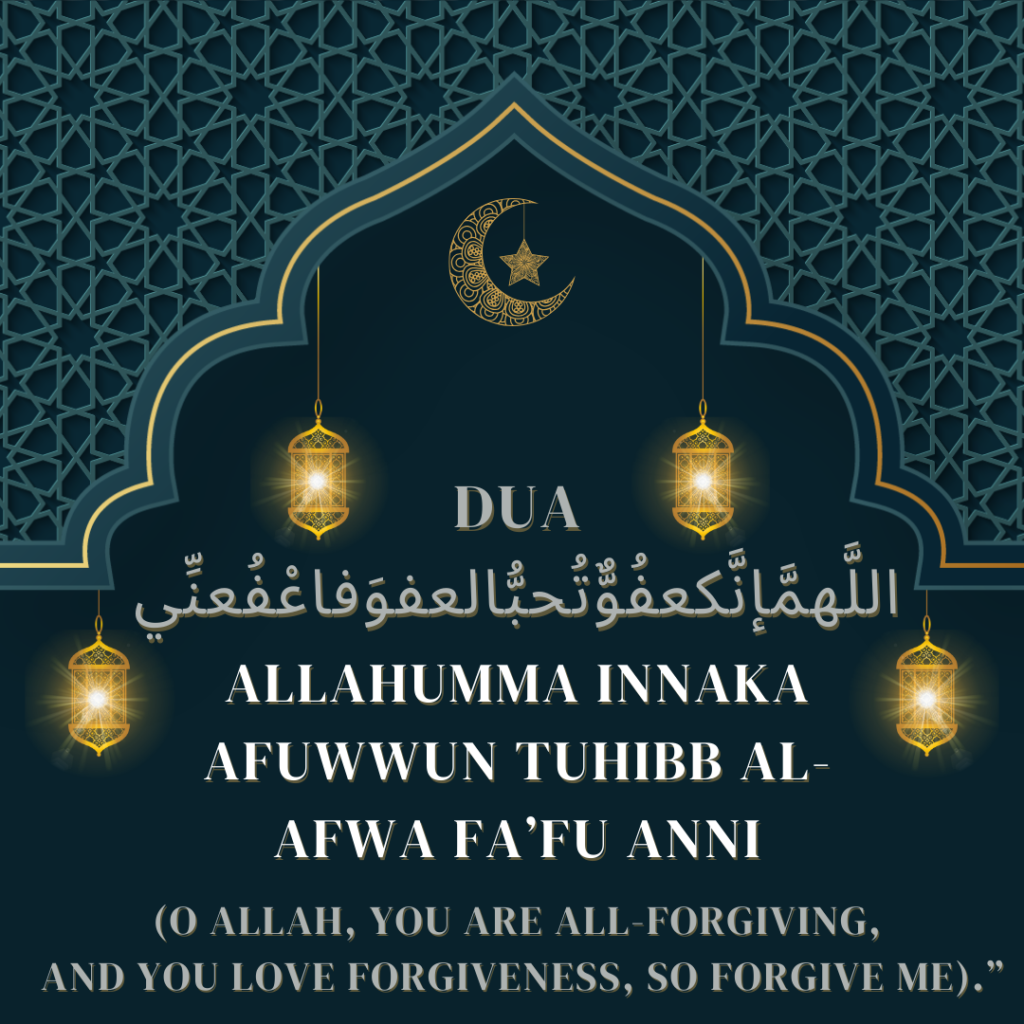
Signs of Laylat-al-Qadr
Laylat-al-Qadr is a peaceful night, as mentioned in the Qur’an. According to an authentic report from the Prophet (PBUH), the sign of Laylat al-Qadr is that the sun rises on the following morning with no visible rays.
The night is pleasant and calm.
Ibn ‘Abbaas
“Laylat-ul Qadr, the sun rises without any rays, as if it were a brass dish, until it rises up.”
Hadith | Muslim
Allah’s Messenger (ﷺ) said: “Laylat-ul Qadr is calm and pleasant, neither hot nor cold, the sun rises on its morning being feeble and red.”
Hadith | Ibn Khuzaimah
Zakat & Giving Sadaqah On Laylat-al-Qadr
In addition to praying for our loved ones, we pray for and remember the less fortunate. One way of remembering the blessings and expressing gratitudeis to give from one’s wealth. Giving Zakat, Zakat-al-Fitr, or Sadaqah is a significant factor in this, and, for many, Laylat-al-Qadr is seen as the perfect moment to make this donation.
“Sadaqah extinguishes sin as water extinguishes fire.”
Tirmidhi
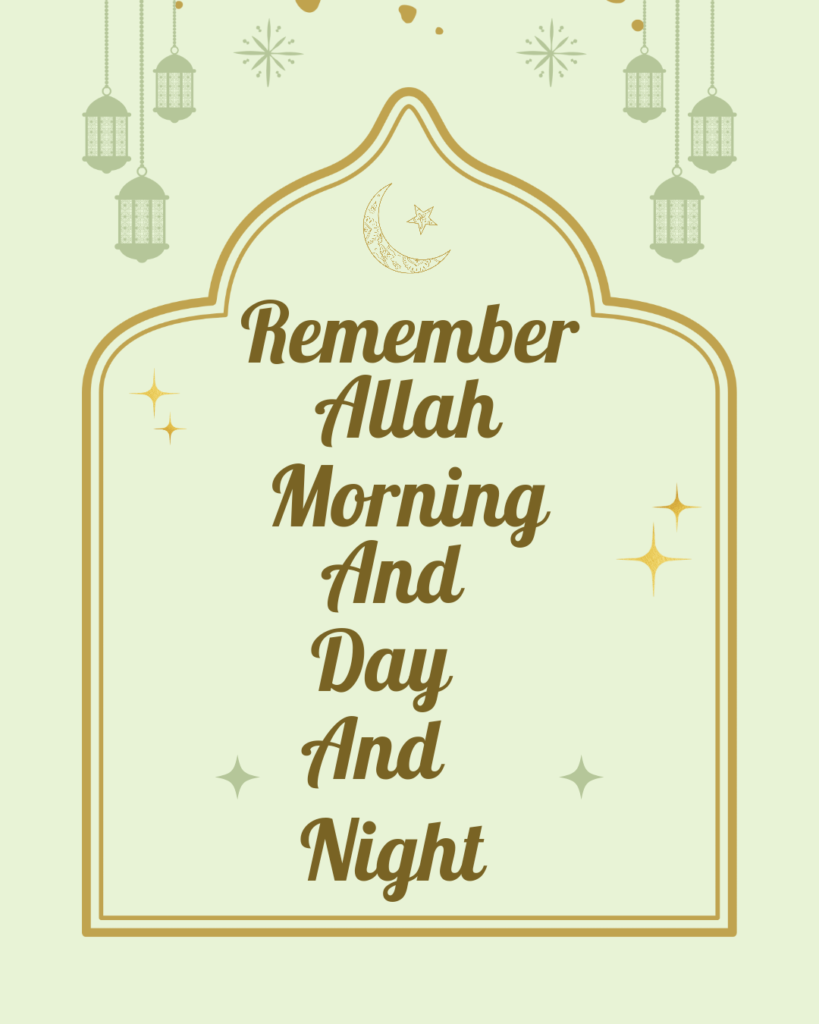
Ramadan FAQ’s
How long does Ramadan last?
The duration of Ramadan lasts for one lunar month, which is typically 29 or 30 days. The exact start and end dates may vary based on the sighting of the moon and local, regional practices.
Are there any exceptions to fasting during Ramadan?
Yes, there are exceptions to fasting during Ramadan. Those who are ill, pregnant, breastfeeding, traveling, menstruating, or experiencing other health conditions may be exempt from fasting. It is advised to consult with a religious authority or healthcare professional for specific guidance.
What is the significance of Suhoor and Iftar during Ramadan?
Suhoor is the pre-dawn meal consumed before the start of the fast during Ramadan. It is necessary to eat this meal to provide nourishment and energy for the day of fasting. Iftar is the meal that Muslims have at sunset to break their fast. It is an important time of communal gathering and gratitude for the blessings of Ramadan.
Are there any recommended practices during Ramadan besides fasting?
Besides fasting, Muslims are encouraged to engage in acts of charity, prayer, and self-reflection during Ramadan. It is also common to recite the Quran, perform voluntary prayers called Taraweeh, and seek forgiveness from others.
What is Zakat?
Zakat, like fasting and performing Salah, is one of the five pillars of Islam. It is an obligation for every financially able and sane adult Muslim whose wealth passes a certain threshold (also known as Nisab). To fulfil Zakat means to give a portion of their wealth to those in need, around 2.5% of it.
May Allah SWT accept all your efforts during this blessed month, forgive your sins, grant you barakah and righteous offspring and grant you all the highest level in Jannatal Al Firdus.
Ameen. <3

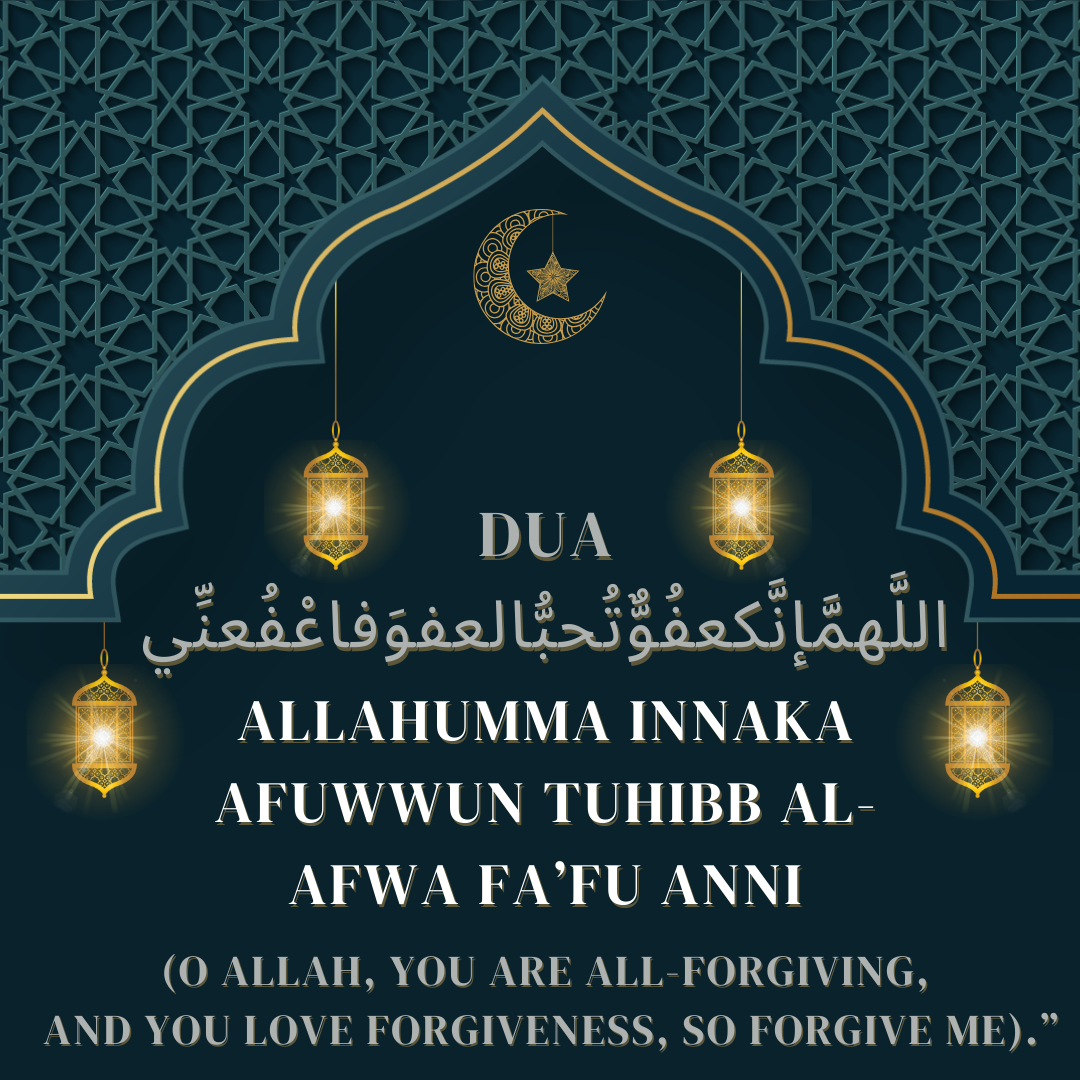
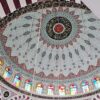
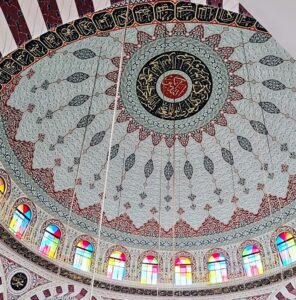

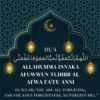
Add comment